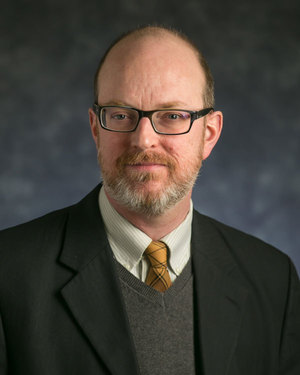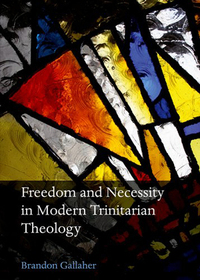
- University of Exeter
- Lecturer of Systematic and Comparative Theology
- Affiliation During NDIAS Fellowship: University of Oxford
- Residential Fellow (2013-2014)
- "Primacy, Papacy and the Challenge of Secularism in Modern Roman Catholic and Eastern Orthodox Theology"
Dr. Brandon Gallaher is Lecturer of Systematic and Comparative Theology at the Department of Theology and Religion, University of Exeter (Devon, UK) and former British Academy postdoctoral fellow in the Faculty of Theology and Religion, University of Oxford, and the Center for Interdisciplinary Study of Monotheistic Religions (CISMOR), Doshisha University (Kyoto, Japan).
He received his D.Phil. in systematic theology from the University of Oxford (2010), where his research explored the tension between God and the world in the Trinitarian theologies of Sergei Bulgakov, Karl Barth, and Hans Urs von Balthasar. This latter work is published as Freedom and Necessity in Modern Trinitarian Theology (Oxford: Oxford University Press, 2016). He has published historical articles, archival material, and translations on modern Orthodox theology—especially on Sergei Bulgakov, Georges Florovsky, Vladimir Lossky, Vladimir Solov'ev, John Zizioulas and Christos Yannaras—in numerous book collections and academic journals. He has also co-edited with Paul Ladouceur a Georges Florovsky reader, The Patristic Witness of Georges Florovsky: Essential Theological Writings, which is forthcoming from Bloomsbury T & T Clark and co-author of When the Son of Man Didn’t Come: A Constructive Proposal Regarding the "Delay of the Parousia" (Minneapolis, MN: Fortress Press, 2016) (with Christopher Hays, Julia Konstantinovsky, Richard Ounsworth and Casey Strine), an interdisciplinary volume on eschatology.
Since 2013, he has served as a lay Orthodox academic member on Eastern Orthodox-Roman Catholic Pastoral Consultation in England and is Orthodox Co-Chair on the Eastern-Orthodox-Pentecostal International Academic Dialogue. He served in June 2016 in Crete at the Holy and Great Council as a Theological Subject Expert in the Ecumenical Patriarchate Press Office where he acted as a liaison with the Ecumenical delegates. For the last five years, he has been engaged in interreligious dialogue, especially with Islam and Japanese religions, and is currently writing a monograph reflecting on this activity as well as other contemporary challenges to Eastern Orthodoxy.
Publications
-
Freedom and Necessity in Modern Trinitarian Theology
Oxford University Press, 2016

The book examines the tension between God and the world through a constructive reading of the Trinitarian theologies and Christologies of Sergii Bulgakov (1871–1944), Karl Barth (1886–1968) and Hans Urs von Balthasar (1905–88). It focuses on what is called ‘the problematic of divine freedom and necessity’ and the response of the writers. By the ‘problematic’ is meant that God is simultaneously radically free and utterly bound to creation. God did not need to create and redeem the world in Christ. It is a contingent free gift. Yet, on the other side of a dialectic, he also has eternally determined himself to be God as Jesus Christ. He must create and redeem the world to be God as he has so determined. Thus, the world is given a certain ‘free necessity’ by him, because if there were no world, then there would be no Christ. A spectrum of different concepts of freedom and necessity and a theological ideal of a balance between these are outlined and then used to illumine the writers and articulate a constructive response to the problematic. It is shown that the classical Christian understanding of God having a non-necessary relationship to the world and divine freedom being a sheer assertion of God’s will must be completely rethought. It puts forward a Trinitarian, Christocentric, and cruciform vision of divine freedom. God is free as eternally self-giving, self-emptying, and self-receiving love. The book concludes with a contemporary theology of divine freedom founded on divine election.